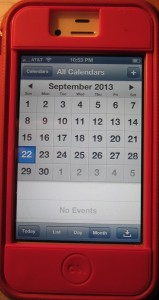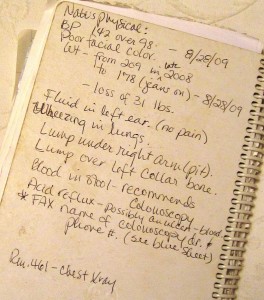Every woman knows what it means to “have a good cry.” There are all sorts of reasons, and we begin figuring that out when we’re still children. I remember being 10 years old and melting down on the front steps at church, a poorly chosen venue to fall apart. But good cries are no respecter of time or place, and out it poured.
Mom handled it by ushering me toward the curb saying, “Honey, I love you! Your dad loves you! Your brother and sister love you! You have lots of friends! Now get in the car!”
My tears probably had very little to do with a specific issue and more to do with the build-up of internal pressures that needed to be released. In any case, by the time we arrived home, I felt much better, which is exactly what a good cry will do for you.
 Biochemists tell us people feel better after a big cry because tears are loaded with stress hormones that are ushered out of our bodies through the vehicle of our tears. Some people think tears come out when tensions become too much to bear, much like perspiration comes out when our bodies take on too much heat.
Biochemists tell us people feel better after a big cry because tears are loaded with stress hormones that are ushered out of our bodies through the vehicle of our tears. Some people think tears come out when tensions become too much to bear, much like perspiration comes out when our bodies take on too much heat.
When I was a new widow, I expended a great deal of effort trying not to cry. I didn’t want to break down in front of people, not because it would have been embarrassing but because I didn’t want the sympathy that tears inevitably brought. I didn’t want to be singled out as someone who was feeling so sad she needed extra attention. And I didn’t want people to think I was the needy one in the crowd, even though I was.
Yet widows must cry. The loss of a mate, especially one who is also a dear friend, confidante, comrade, and lover, is tear-worthy for sure. And so we wait for those moments when we know we won’t be interrupted: during the night, in the car, on a walk, in the shower. And oh the good cries we have then!
But even though it’s good to cry, God doesn’t want us to get stuck there, thinking that’s as good as it’s going to get. Tears are indeed good, and God gets the credit for inventing them, but crying has limited use. As Ecclesiastes says, it may endure for a night, but joy should come in the morning. After nearly 4 years of widowhood, I’ve found that it does.
 Sometimes our emotions are like a roller coaster, cry-joy-cry-joy-cry, but God is forever surprising us with fresh blessings and an awareness of his close presence, which helps stabilize us. And once in a while he’ll even bless us with a bout of crying that comes from laughing too hard.
Sometimes our emotions are like a roller coaster, cry-joy-cry-joy-cry, but God is forever surprising us with fresh blessings and an awareness of his close presence, which helps stabilize us. And once in a while he’ll even bless us with a bout of crying that comes from laughing too hard.
When that happens, it’s a really good cry.
“Blessed are you who weep now, for you will laugh.” (Luke 6:21)




